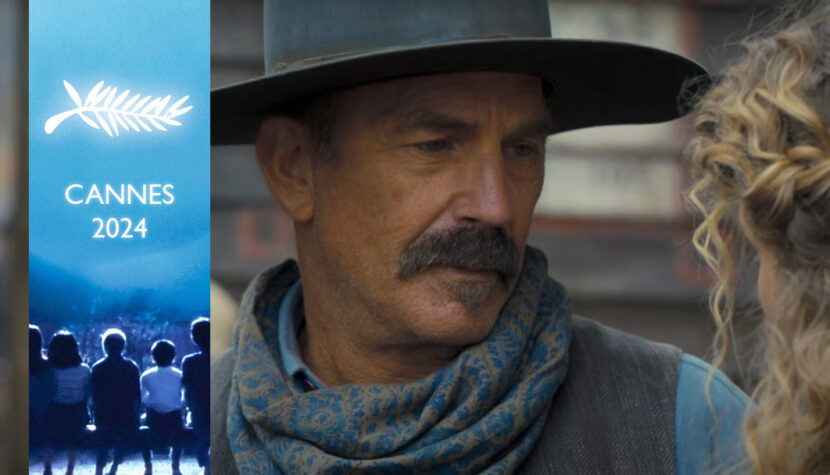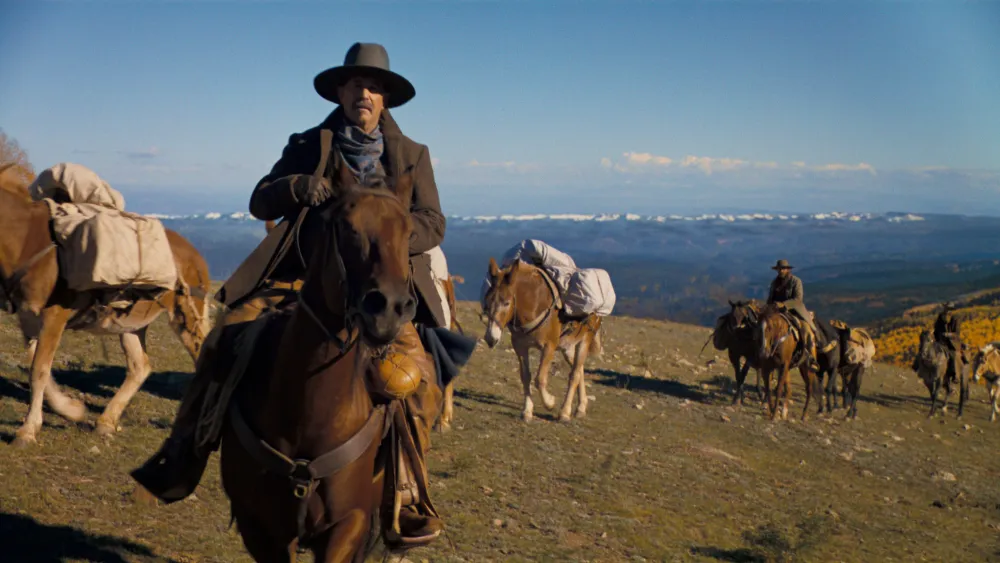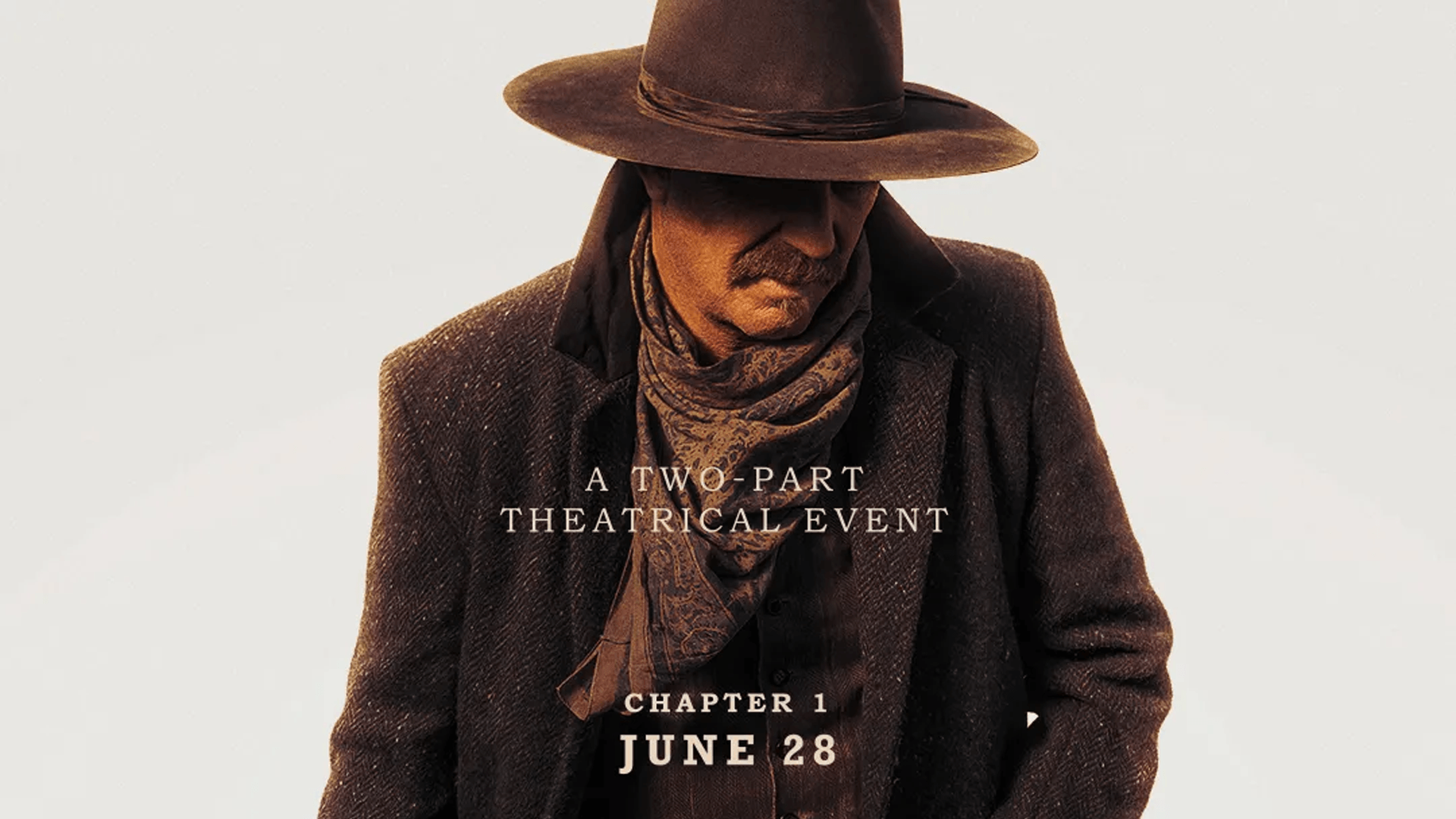Horizon: An American Saga – Chapter 1. Unforgiven [REVIEW]

This is a project that few believed in, yet Kevin Costner proved at the Cannes festival that he understands the western genre like no one else. It’s excellent cinema that requires patience (it lasts three hours) and an investment of our time. In the end, Horizon was presented only as an introduction to the director’s American saga. But are we dealing with his magnum opus?
If we play around with the math, it looks something like this: 33% is the sentimental Costner we know from his previous films, 33% is John Steinbeck’s The Grapes of Wrath, and 33% is the atmosphere and grit straight out of the popular game “Red Dead Redemption 2.” The spirit of those times is felt at every step, hence the comparison of Horizon to the Rockstar Games title.
To some extent, this is a revenge story about a family seeking vengeance on a certain woman. This is the starting point of Horizon, which about an hour in introduces the mysterious character Hayes Ellison (a phenomenal Costner), reminiscent of the actor’s previous protagonists combined with Eastwood’s nameless character. Simultaneously, there’s a subplot about a settlement destroyed by Native Americans and a family trying to survive the massacre of innocents, as well as a story about a convoy of settlers heading to the city of Horizon. The film alternates between these plots, making it feel somewhat like a series in which these various threads will eventually come together (likely in the next film, as this is meant to be a grand saga). However, it has the spirit of a classic; each plot element brings a breath of fresh air, and we slowly begin to empathize with the newly introduced heroes.

The film works best in moments when it becomes a deep reflection on the fragility of life in those times. In Costner’s world, one unforeseen move or the sudden drawing of a weapon can end a life in an instant. And although the director seeks beauty in human relationships, in characters who find themselves in the least favorable situations, he in no way glamorizes America of that era. Due to socio-racial conflicts (Native Americans versus Americans), everyone loses their life: not only adult men but also pregnant women and innocent children. Massacres are interspersed with the serene atmosphere of the blissful prairie, giving us a vision of land stained with blood, where the primal habits of bad people paint the American ground with gallons of red. The action scenes and dramatic moments are masterfully executed: you can almost smell the gunpowder from the cowboy’s guns, and the whole show feels like a lost Hollywood from the ’90s. Westerns aren’t made like this anymore, but Horizon proves it can still be done if you love the genre as much as Kevin Costner. His America is a place that doesn’t forgive, but only a few characters from the cinematic epic realize this. The rest will still have to find out.
Finally, after so many years of soulless westerns, we have received a spectacle of heterogeneous composition that leads several linear, theoretically disconnected threads. However, we know that sooner or later they will all start to intertwine: each character is heading to the titular city of Horizon (even if they don’t know it yet), which is supposed to be a kind of urbanized Arcadia, welcoming its new residents with open arms. A few smaller moments imply, however, that it could just as well be one big fraud, which will intensify the action in the next parts. In his Horizon, Costner tries to convey the golden rule of the wild west: trust no one, not even yourself. At times, this story resembles an anti-western like Clint Eastwood’s Unforgiven. The achieved naturalism in rough stylistics corresponds with Eastwood’s western and draws on its best formal elements.

Despite the tangible sense of futility in this great hell, Costner still couldn’t escape his penchant for Hollywood sweetness. As a result, some sequences draw from the saccharine of his previous films, sometimes resembling, for example, Robin Hood in the wild west. But this is only a part of the whole and doesn’t overshadow our cinematic experience. For the most part, Costner focuses on brutal authenticity and a story about simple people who will have to step out of their comfort zones to save not only their loved ones but also themselves.
Horizon slowly unfolds its Steinbeckian story, introducing many characters whose names are still hard to remember, but it’s best to treat this film as an introduction to a consistently developing novel. The last two minutes of the film, briefly foreshadowing the next events of the saga, promise an otherworldly, passionate experience. So push through this “pilot episode” and give Costner the benefit of the doubt. This guy really knows what he’s doing.

